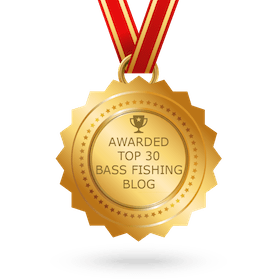Two north Alabama men have been charged with violating Alabama’s invasive species laws. Michael L. Perry, 35, of Jasper, was charged with one count of illegal importation and one count of illegal sale of blueback herring. James M. Blanks, 58, of Crane Hill, was charged with two counts of illegal possession of the same fish.
The men were charged in early August after the discovery of the herring during routine checks by state conservation law enforcement officers on several commercial guide vessels at Lewis Smith Lake. A following investigation revealed that Perry had been importing potentially thousands of blueback herring annually from Georgia.
Both men are commercial fishing guides and are accused of using the herring as bait for striped bass fishing charters. Each man faces the potential for significant fines and jail time.
Native to the Atlantic coast of the U.S. and Canada, blueback herring is considered an invasive species in Alabama. Alabama law prohibits the importation of invasive species that pose a threat to native wildlife or public safety.
An invasive species is any nonnative organism that has the potential to cause harm to the ecosystem in which it is found. Examples of invasive species include the introduction of Asian carp in areas of the Midwest, pythons in south Florida and fire ants in the Southeast.
According to the U.S. Fish and Wildlife Service, invasive species like the blueback herring cost the country more than $120 billion in damages each year. To date, Alabama has spent more than $300,000 on researching the effects of herring in Lewis Smith Lake. The state expects to spend an additional $300,000 over the next three years.
In recent years, blueback herring have become established in Lewis Smith Lake and threaten to disrupt the lake’s gamefish composition and feeding habits. Based on information from local anglers, state biologists think these fish were purposely introduced to augment the lake’s baitfish population.
Kevin Dodd, Law Enforcement Chief with the Alabama Department of Conservation and Natural Resources (ADCNR), said an explosion in the blueback herring population at the lake could create a ripple effect throughout the local communities in addition to the lake’s fishery.
“Given the existing economic impact of recreational fishing on Alabama’s lakes and waterways, it is no exaggeration to say that an invasive species like blueback herring could have a detrimental impact on local economies,” said Dodd. “These commercial fishing guides were playing with fire.”
North Alabama’s Lewis Smith Lake is well-known for its bass fishing. Blueback herring are a threat to that reputation because they compete for food with largemouth bass and other game fish in the early stages of life. Preliminary research at Lewis Smith Lake suggests the introduction of blueback herring has resulted in fewer adult largemouth bass.
“The competition that these fish pose to our native game fish is potentially substantial,” said Nick Nichols, ADCNR’s Fisheries Chief. “Invasive species can completely disrupt the balance necessary in the management of a quality fishery. The introduction of blueback herring into Smith Lake is a prime example of the negative impact that an invasive species can have on native ecosystems.”
In addition to Lewis Smith Lake, blueback herring have been found in Lake Martin and Yates Lake. For more information about invasive species in Alabama, visit outdooralabama.com.
The Alabama Department of Conservation and Natural Resources promotes wise stewardship, management and enjoyment of Alabama’s natural resources through four divisions: Marine Resources, State Lands, State Parks, and Wildlife and Freshwater Fisheries. To learn more about ADCNR, visit www.outdooralabama.com.











